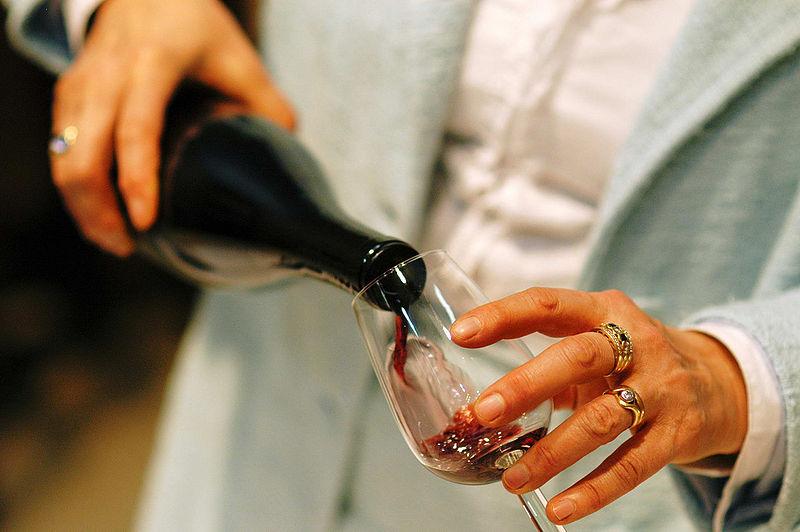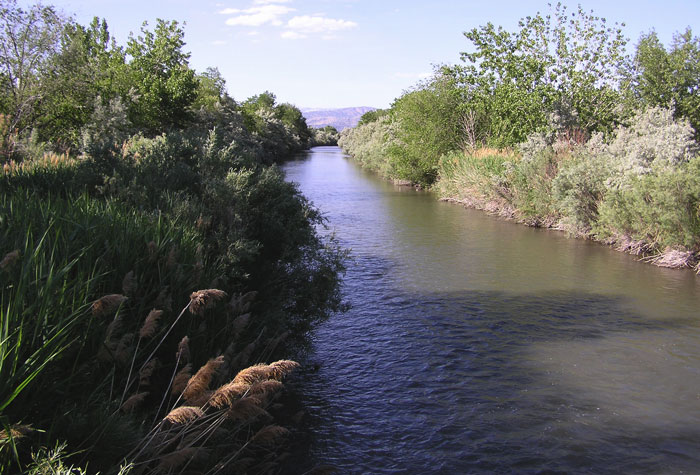First Sunday of Advent, Year C, 2015
The Rev'd Richard Smith, Ph.D.
It’s Star Wars, and Lord of the Rings, and Harry Potter, and the Chronicles of Narnia, that kind of fantastical imagery that Luke is using in today’s gospel.
When all hell breaks loose, he says -- when there are “signs in the sun, the moon, and the stars, and on the earth distress among nations confused by the roaring of the sea and the waves” -- when all this happens, the Son of Man will appear on clouds of glory.
Years after the destruction of the Jewish Temple by the Romans, Luke is writing in retrospect for a community still devastated by what had happened.
That Temple had been the center of the Jewish universe. It was not only where Jews came into contact with God, the place to offer sacrifice and celebrate the great festivals and rituals that had made them Jews. It was also the center of their life and culture as a people. The destruction of the Temple was the end of their world.
The Roman historian Josephus describes what the Romans did to the Jews:
Men and women, old and young, insurgents and priests, those who fought and those who begged for mercy, were cut down in indiscriminate carnage. The number of the slain exceeded that of the slayers. The Roman legionaries had to climb over heaps of dead to carry on the work of extermination.
That was the horror that Luke’s people were still reeling from as they heard the words of today’s gospel.
Our modern world has known similar horrors: The Nazi and Armenian holocausts; the dropping of the atom bombs; 9/11; the melting glaciers, deadly hurricanes, interminable droughts, dying species; the unbelievable devastation now taking place in Syria. The list goes on.
And this week the world celebrates World AIDS Day. That pandemic was, for many of us, the end of our world.
There have been so many advances in treating this disease. Although Africa and those in poverty still bear the brunt of the pandemic, in the developed world people with HIV can now expect a normal life span, and there are new medicines like Truvada to prevent contracting HIV. We have a long way to go, but still we’ve come so far, with so much to celebrate on AIDS Day this year.
And yet, like Luke’s community in the wake of the Temple’s destruction, we are still reeling from the shock of what we went through in those dark days: the loss of so many loved ones; 20-somethings, emaciated, walking with canes; all the purple lesions, night sweats and diarrhea; the confusion and panic and stigma; the sheer helplessness we felt in the midst of it all.
We who lived through the height of that crisis will never be the same because of what we went through. We still carry the scars from those horrible, horrible days.
So we hear today’s gospel much like Luke’s community once did, like veterans of a horrific war, survivors of a horrendous devastation, still trembling, still trying to get our bearings in the world.
How do we stand now in the wake of all this? We can’t un-know what we learned and experienced back then, can’t un-see what we saw. How are we to be now, in the wake of it all?
In the very midst of hell breaking loose, with many understandably fainting from fear and foreboding, Jesus says to those who saw the destruction of the Temple, “Stand up, raise your heads, because your redemption is drawing near."
The last word in this story is not death or tears or sadness, but redemption. This is a word of hope.
All that suffering will be redeemed, all the scars from the past healed and transformed into things of beauty and compassion. All the pain and confusion will have been worth it, been redeemed, because they will have led us, finally, not to tears and death, but to greater life and love and laughter. The last word here, unbelievable as it may seem, is redemption.
These words of hope resonate with something deep inside each of us, because, after everything life may throw at you, you are, deep down, a creature of hope. We humanoids can’t help ourselves. Even in the most devastating moments, we stubbornly hope, even against hope.
Tony Kushner, in his epic play
AIDS in America, has the main character, a man with AIDS, address these words to an angel:
I've lived through such terrible times and there are people who live through much worse. But you see them living anyway. When they're more spirit than body, more sores than skin, when they're burned and in agony, when flies lay eggs in the corners of the eyes of their children - they live. Death usually has to take life away. I don't know if that's just the animal. I don't know if it's not braver to die, but I recognize the habit; the addiction to being alive. So we live past hope. If I can find hope anywhere, that's it, that's the best I can do. It's so much not enough. It's so inadequate. But still bless me anyway. I want more life.
A propensity to hope, even against hope. We can’t help ourselves. It’s how the Creator made us.
St. Augustine once said that hope has two beautiful daughters, and their names are anger and courage: anger at the way things are, and courage to make sure they don’t stay that way.
I remember the words we both heard and shouted so often in those dark AIDS years “Act up! Fight back!” -- words of anger and courage, words of hope. And how so many reached out to care for the dying, transforming all that pain and grief into something truly beautiful and powerful.
I’ve seen a similar hope in undocumented immigrants who stand up and tell their stories before crowds of strangers and before Senate committees, calling for reform.
And mothers who’ve lost kids to gun violence stand up and demand a change in our gun laws.
Recently I listened to a man whose marriage had fallen apart. He told me about the months he’d spent paralyzed by anger both at himself and his partner, and about his fear of losing everything, including the close relationship he’d had with his son.
Then, after many dark months sorting through all the anger and grief and depression, he suddenly decided -- it was a decision -- to step out of the darkness and live into the hope that he could make all the necessary and difficult decisions, create a new life, one in which he and his son would be even closer than before.
Today’s gospel is about redemption; it’s about the hope that the One who made us placed deep in our hearts. We are invited to see the future through the eyes of hope.
It’s true that your past and how you perceive it has a lot to do with making you the person you are today -- the opportunities you were given, your family background, education, and health.
But it’s also true that the future and how you perceive that also makes you who you are. How you perceive your future governs and shapes how you are in the present, whether you eagerly move forward with confidence and grace, or hold back in fear, living a diminished life.
If we perceive the future to be, as George Orwell believed, “a boot stamping on a human face forever,” then this will shape how we live now -- either striking out in anger and desperation at the injustice of it all or cowering in fear and despair.
But if we have a hunch that today’s gospel just may be right, that the future is full of redemption, then we move forward differently, with confidence and gratitude and hope.
- If in the world to come God will wipe every tear from our eyes, then we wipe the tears from each other's eyes now.
- If in the world to come all people will live in peace, then we let the weapons fall from our hands now.
- If in the world to come every refugee and every immigrant and every person sleeping on the street will have a home, then we reach out our hands in friendship and welcome now.
The way we perceive our future shapes how we are in the present.
So on this first Sunday of Advent, we turn the calendar page to start the new church year, whisper a prayer of thanks and hope, roll up our sleeves, and get back to work.
Raise your heads. Tomorrow is already on the way, and it is full of redemption and hope.






